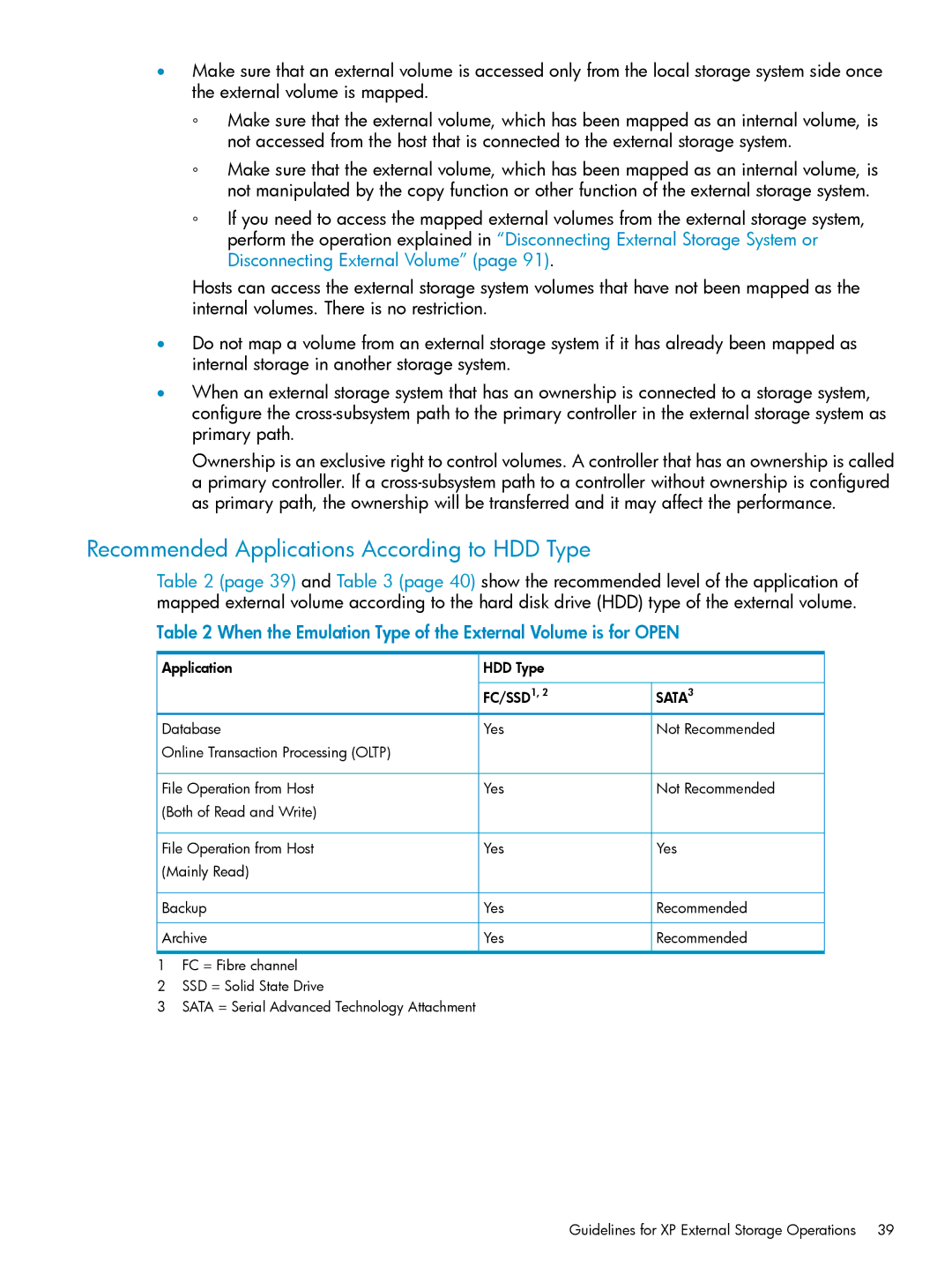
•Make sure that an external volume is accessed only from the local storage system side once the external volume is mapped.
◦Make sure that the external volume, which has been mapped as an internal volume, is not accessed from the host that is connected to the external storage system.
◦Make sure that the external volume, which has been mapped as an internal volume, is not manipulated by the copy function or other function of the external storage system.
◦If you need to access the mapped external volumes from the external storage system, perform the operation explained in “Disconnecting External Storage System or Disconnecting External Volume” (page 91).
Hosts can access the external storage system volumes that have not been mapped as the internal volumes. There is no restriction.
•Do not map a volume from an external storage system if it has already been mapped as internal storage in another storage system.
•When an external storage system that has an ownership is connected to a storage system, configure the
Ownership is an exclusive right to control volumes. A controller that has an ownership is called a primary controller. If a
Recommended Applications According to HDD Type
Table 2 (page 39) and Table 3 (page 40) show the recommended level of the application of mapped external volume according to the hard disk drive (HDD) type of the external volume.
Table 2 When the Emulation Type of the External Volume is for OPEN
Application | HDD Type |
|
| FC/SSD1, 2 | SATA3 |
Database | Yes | Not Recommended |
Online Transaction Processing (OLTP) |
|
|
File Operation from Host | Yes | Not Recommended |
(Both of Read and Write) |
|
|
File Operation from Host | Yes | Yes |
(Mainly Read) |
|
|
Backup | Yes | Recommended |
Archive | Yes | Recommended |
1FC = Fibre channel
2SSD = Solid State Drive
3SATA = Serial Advanced Technology Attachment
Guidelines for XP External Storage Operations | 39 |
